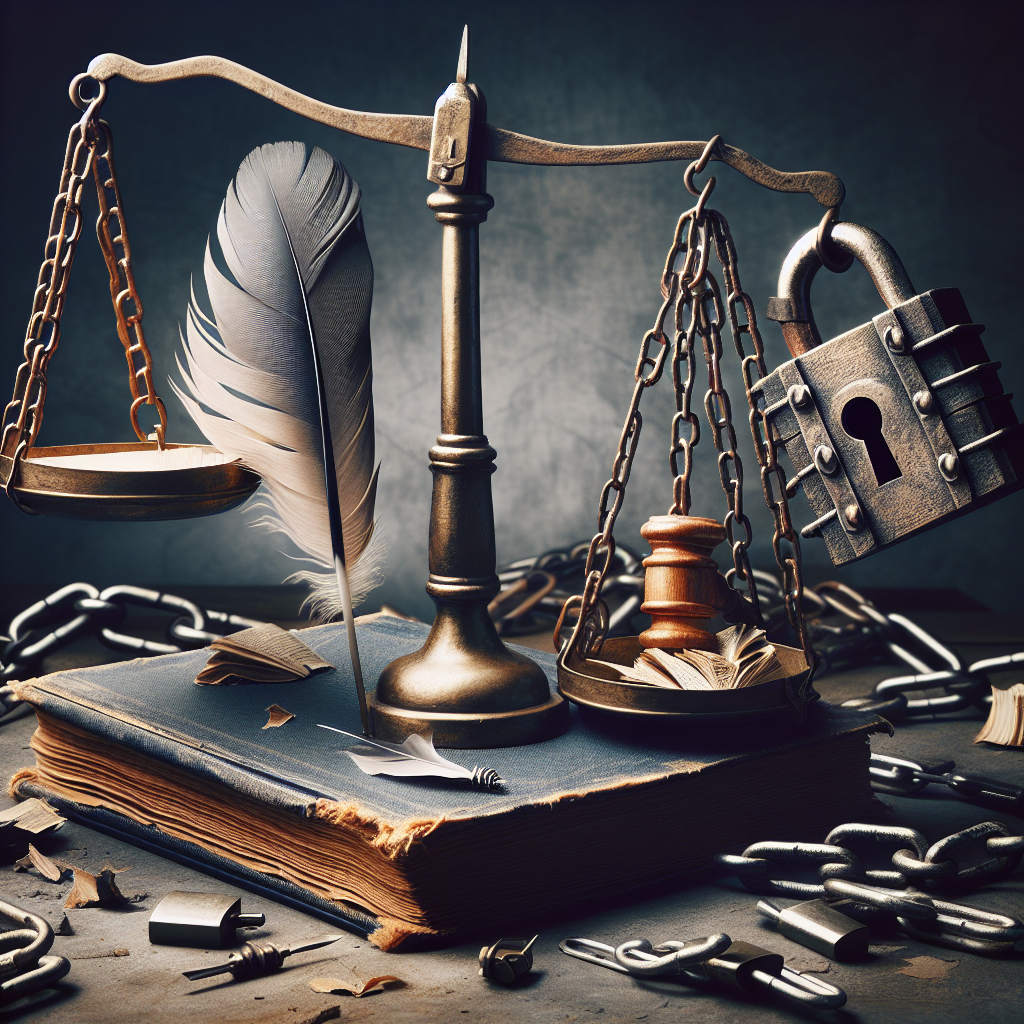The current political climate has illuminated a concerning trend where candidates from the Democratic ticket are openly endorsing censorship, potentially compromising the First Amendment rights that safeguard free speech in America. During a recent vice-presidential debate, Governor Walz appeared to endorse government-sanctioned censorship, highlighting a growing vulnerability in the fabric of American democracy. This encroachment on free speech rights has become increasingly prominent over the last decade, prompting fears that the censorship-industrial complex is gaining traction among politicians and public figures, particularly within the Democratic Party.
The essay from the Brownstone Institute raises alarms regarding the mindset of Democratic politicians, suggesting that there is an insidious spread of censorship which could stifle dissenting voices under the guise of regulating false information. Prominent figures like John Kerry have expressed discontent with social media, which they blame for the dissemination of what they term “disinformation.” Kerry’s comments reflect a desire to circumvent constitutional protections, framing the First Amendment as a significant obstacle to necessary changes in governance. This attitude indicates a troubling willingness to prioritize governmental control over open discourse in order to achieve political aims.
Compounding this issue, notable politicians have proposed drastic measures—such as Hillary Clinton’s suggestion of criminal penalties for spreading “misinformation,” and Alexandria Ocasio-Cortez’s calls for tighter regulation of the media. Recently, high-profile cases have illustrated the legal repercussions faced by those deemed to be spreading disallowed narratives, such as journalist Mark Steyn, who faced exorbitant damages for dissenting remarks about climate science. These actions represent a broader intent among certain political factions to suppress any narrative that diverges from an official or favored perspective, raising alarming questions for the future of free speech in the United States.
The threats to free expression are not limited to political discourse, but extend to the judicial system and academic institutions as well. For example, New York’s Attorney General Letitia James has been vocal about using legal tools to target opponents, revealing a willingness to weaponize the judicial system against ideologically adversarial entities. Academic freedom also faces challenges, as demonstrated by University of Pennsylvania law professor Amy Wax being punished for her critical views on topics including affirmative action. These events signal a troubling shift where institutional mechanisms are being manipulated to marginalize dissenting opinions, labeling them as “unprofessional” rather than engaging in meaningful debates.
The broader implications of these actions are significant. According to the Foundation for Individual Rights and Expression, the punitive measures taken against academic figures like Wax set dangerous precedents that could transform academic institutions into environments where free expression is undermined. Scholars with controversial opinions may face intimidation or sanctions rather than a platform for discussion. Such a climate not only hinders intellectual diversity across educational institutions but also restricts public discourse, as individuals might self-censor out of fear of repercussions. The trajectory suggests an evolving landscape of discourse that may prioritize conformity over the robust debate necessary for a healthy democracy.
International examples illustrate that the encroachment on free speech rights is not uniquely American. Countries like Germany are already navigating stringent regulations on expressions critical of governmental policies, showcasing the dangers of allowing state-sanctioned censorship to flourish. With increasing calls for restructurings that aim to regulate online content heavily, there exists a palpable risk of confronting tech platforms and alternative information sources that resist such control. The stakes are clear: the pursuit of open dialogue and the public’s right to know is at risk, marking a troubling period for fundamental democratic principles. The Pew seems set on ensuring regime control over the narrative, leaving many to ponder the future of free expression and the American commitment to the First Amendment.

